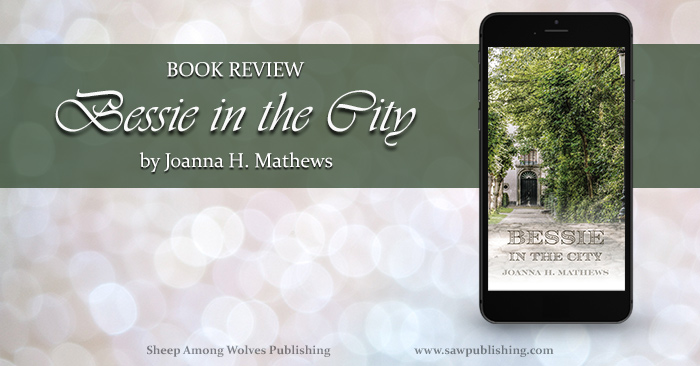Lily Gordon—Book Review
 How do you face situations where your own sense of right and wrong is the only rule governing your actions? Is that rule strong enough to conquer self-indulgence and prompt unselfish faithfulness in all things?
How do you face situations where your own sense of right and wrong is the only rule governing your actions? Is that rule strong enough to conquer self-indulgence and prompt unselfish faithfulness in all things?
Lily Gordon, by Catherine Douglas Bell, is a 19th century story that addresses this very question. While the story’s primary focus is on how dealing faithfully relates to the role of managing our houses and homes, the lesson is one we can apply to any duty, whether big or small.
Lily’s struggles and triumphs are very true-to-life and relatable for anyone who has struggled to put their dreams and resolutions into practice on a daily basis. While the issue of directing and at times reproving servants is one that is largely non-existent for us today, Miss Bell’s remarks on the subject leave us with a poignant reminder of how our actions influence others. Will our friends, our family, and all those who interact with us, be better or worse for the influence we have upon them?
 Book Details
Book Details
- Title: Lily Gordon; or The Young Housekeeper
- Author: Catherine Douglas Bell
- Publisher: Ballantyne, Roberts and Company
- Genre: Victorian Home Fiction
- Number of Pages: 312
- Theme: Homemaking and womanhood
- Age Range: Youth and Adult
- Source: Google Books
Summary
“Always remember, dear Lily, that there can only be a right and a wrong in every action, however small.”
As Mrs. Blair launches her dearly loved pupil into a world where she has always reigned like a queen, she fears lest Lily’s yielding and easy-going nature will fail when put to the test of following the only rule she will be subject to—her own sense of right and wrong. Will Lily’s dreams of usefulness to her father and brothers drift into idle, unfulfilled fancies on the current of self-indulgence? Or will she be able to choose the right path over the easy one, and prove the beauty and the happiness of serving others and “rendering to all that which is just”?
Lily Gordon is a unique and engaging tale of a motherless “lassie” in rural Scotland faced with the task of managing her father’s house. In a world where the roles of men and women are being continually challenged, this story provides an interesting perspective on putting our whole hearts, souls and talents into the tasks and opportunities God has given us as women. I especially enjoy the character of Mabel Seton, but I love how Lily, Geraldine and Mabel each follow God’s path while at the same time retaining their individual personalities.
SAW Rating System
We have recently altered our reviewing system using the model of our poetry grading worksheet. For an explanation of the new system, see our introductory post.
Total Score—82/100
Great Qualities—40/50
Plot development—7/10
Character development—8/10
Command of language—8/10
Impact of the book—8/10
Originality—9/10
Good Qualities—42/50
Innocence regarding evil—8/10
Active promotion of good—9/10
Level of spiritual challenge—9/10
Healthy view of life—8/10
Honouring God—8/10
Items of Note
-
Romance and morality
The reference to a man having been “married before” is implying a widower situation rather than divorce, as the latter was socially unacceptable and virtually non-existent at the time of this story.
There is mention made of an engagement being broken off by a frivolous girl entering on another relationship.
-
Disturbing content
A situation occurs involving a servant wrongfully unpaid, her resulting theft, despair and her family’s bitter response to her disgrace. The situation is eventually resolved, but casts a slightly darker tone on that section of an otherwise positive and innocent story.
-
Language
The words “nursed,” “gay” and “queer” are used in a very different sense from today. A character in much distress says “would to God” such-and-such were not the case. The word “vow” is used to express a strong desire or resolution rather than something sacred and inviolable.
-
Alcohol and drug use (includes tobacco)
Wine is drunk both as medicine and for pleasure. A young servant girl is recording as being “too fond of going out at night to parties, to singing saloons, and such places, where no respectable girl ought to go.”
-
Spiritual content
This story is written from a Scottish Presbyterian perspective, but deals very little with denominational issues.
Anger, pride and rivalry form sub-themes in the story, but the author’s conclusions (although not the views of all the characters) are quite appropriate.
The author views as acceptable a greater degree of physical contact between adult siblings than I would feel comfortable with but nothing untoward occurs.
-
Family roles and behavior
A father is portrayed as very absentee and not assuming his rightful role—this is viewed as an exception rather than a stereotype. In result, his children sometimes assume authority that he will not exercise.
There is a little bit of gossip employed as an author’s tool, although gossip generally is censured.
-
Mature subject matter
There is brief mention made of a wealthy but somewhat disreputable woman paying a bet lost at the race-course.
Additional Notes
This book was scanned by Google Books, and the scanning process has resulted in some formatting issues, such as inserted lines of garbled words, misdirecting chapter links and accidentally substituted words (e.g. “been” turned into “beer”).
Lily Gordon—A Challenge to Girls and Women
I remembered enjoying Lily Gordon on previous occasions, and I remembered too—in a general way—the call this story makes to embrace our womanhood and its duties with courage, faithfulness and a desire to do all to the glory of God.
But it strikes me even more this time around just what this book is saying. It is calling us to use our talents, our areas of strength—and also our areas of weakness made strong through Christ—and pour all of our best into being wives and mothers, sisters, daughters and homemakers. It is a call to realize that truly fulfilling these roles is going to take the best we have.
We have to recognize that we’re not being asked to fill an inferior role, or a secondary position, but rather a crucial, fundamental and in many cases highly challenging opportunity. We have the ability to impact many through the successful and faithful commitment to our role and our duties, and if we do that, I think we will discover—as Lily did—that serving others is not a chore but a happiness.
Do you enjoy less well-known vintage stories? See our review of Bessie in the City:

